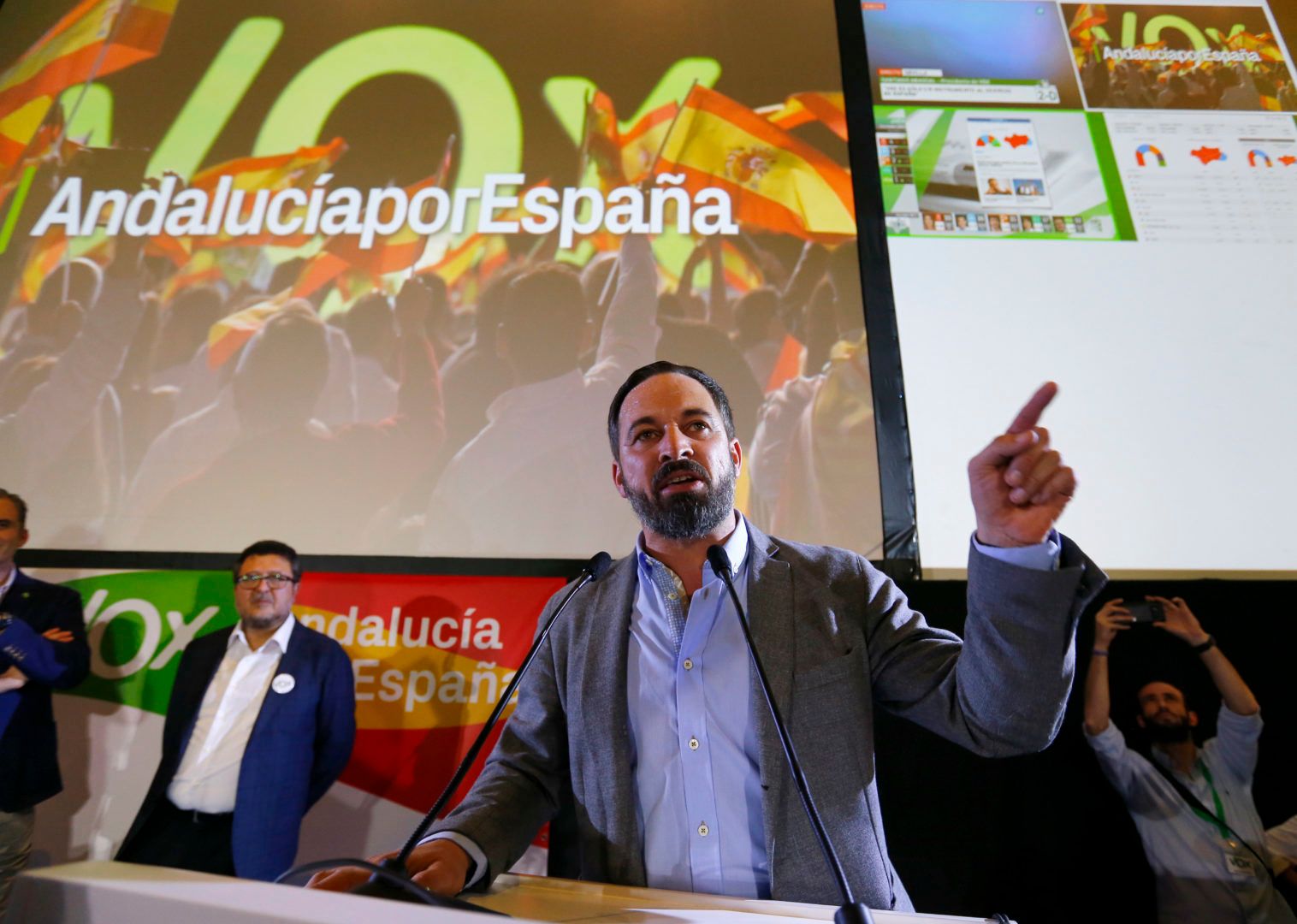After many years in the shadows, the far-right has now arrived as a force in Spanish politics. Local elections in Andalusia on Sunday gave the fiercely nationalistic and socially conservative Vox party 12 of the provincial assembly's 105 seats.
That makes Vox the first Spanish far-right party to win office since the country's dictatorship ended in the 1970s. Vox wants to slash taxes, quash Catalan autonomy, criminalize illegal immigration, build a wall on the Moroccan border, restrict the religious activities of Muslims, and radically centralize political control in Spain. Ironically: the party also wants to eliminate precisely the assembly in which it just won seats.
For decades, the brutal legacy of Francisco Franco's right-wing dictatorship put a stigma on far-right politics. Meanwhile, the center-right Partido Popular (PP) served for many years as a big tent party for the Spanish right, leaving little room for fringier right-wing upstarts.
But now, as the number of people with a living memory of Franco dwindles, the stigma is lifting. What's more, the PP is splintering. Vox itself was founded in 2013 by disgruntled members of the PP's right wing. And earlier this year the PP lost national power amid a corruption scandal. Still, what has helped Vox most of all is the surging number of Middle Eastern and African migrants arriving on Spanish shores.
Overall, migrant arrivals in the EU have fallen dramatically since peaking in 2014-2015, but the numbers in Spain have risen more than 500 percent since then. That's partly because the populist government of Italy, once a favored destination for migrants, has closed its own ports to them. Andalusia, as Spain's southernmost region, has borne the brunt of that wave, making it fertile ground for Vox.
The party is still a relatively small organization, limited to one part of the country where its anti-immigrant message is especially resonant. But as municipal and regional elections approach in 2019, Vox is looking to make broader gains with its "Spain first" message.
As the party's own website promises: "Soon we will be in your province."
